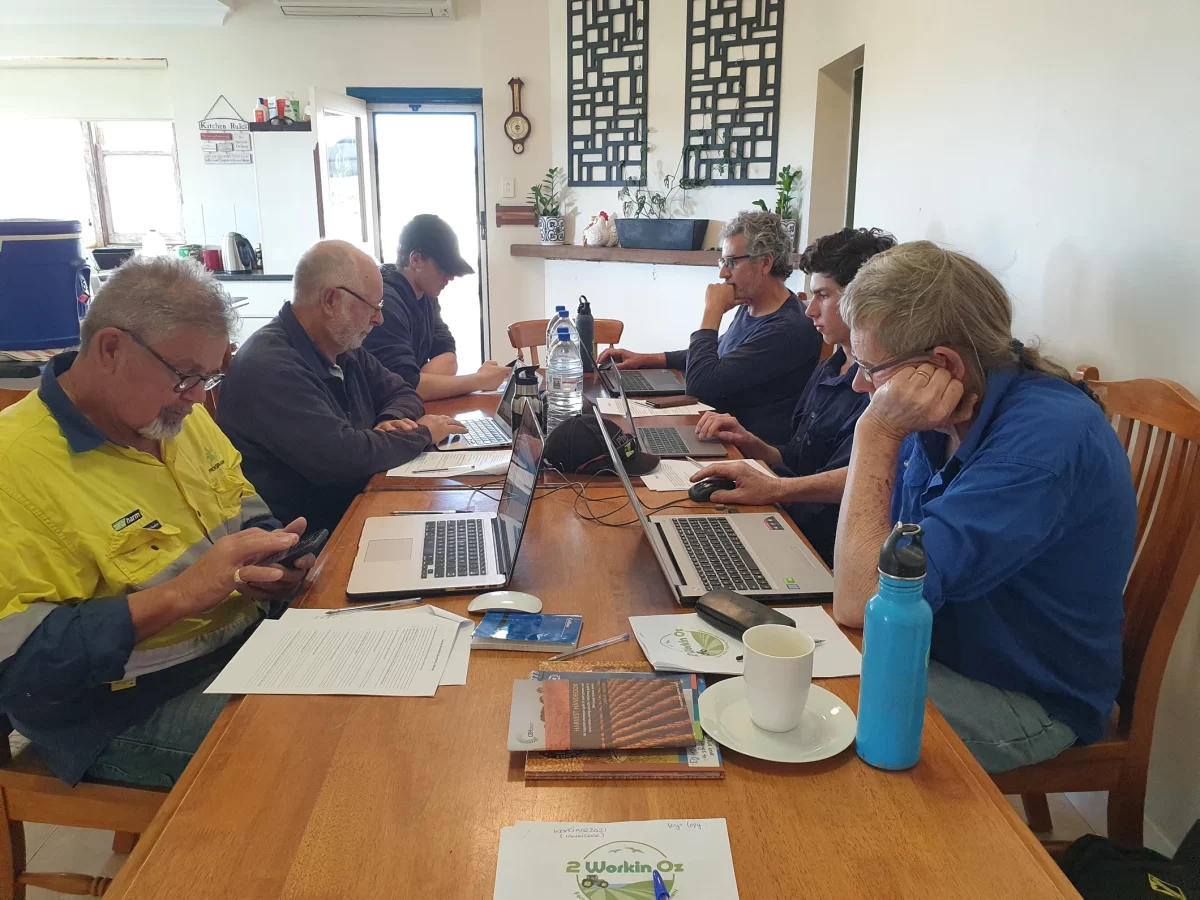
WA farming training and recruitment agency 2 Workin Oz works with GPA Training on safety and fire-preparedness training. Photo: GPA
GRAIN Producers Australia (GPA) has announced a new initiative aimed at increasing farm safety education with practical knowledge and awareness among school students.
With support from the Federal Government the GPA Training online platform will be used to deliver the GPA Agricultural Safety Training project, which will see about 200 school students in South Australia gain access to a range of courses on agricultural safety.
GPA chief executive Colin Bettles said farm safety was a high priority for GPA members, and it was great to see education opportunities being offered via digital programs.
“No matter what role you play on the farm, the importance of farm safety can never be underestimated or taken for granted,” Mr Bettles said.
“This project with school students adds to the work we’re already doing for growers to collaborate across the industry and lift safety standards,” GPA southern director and SA farmer Mark Schilling said.
“We’re doing this with online grain delivery site inductions and other courses, including stewardship training, so growers can access the right information on the correct application of pesticides, to ensure they’re safe and effective.
“This supports GPA’s strategic objectives to deliver initiatives in pursuit of zero harm on-farm and in the off-farm supply chain and surrounding communities.
“We’ll continue delivering new courses online via GPA Training to ensure we’re continually lifting the bar, to improve safety outcomes.”
The Port Pirie Industry Training Hub, covering the Barossa, Yorke and Mid North regions, is funding the roll-out of GPA Training’s virtual training platform to a range of senior secondary agriculture students.
Students who want to work in the grains and farming sector, guided by their teacher, will become familiar with key farm safety practices.
Industry Training Hubs are an initiative of the Australian Government and aim to improve opportunities for young people in regions with high youth unemployment, and target Year 11 and 12 students.
Port Pirie Industry Training Hub career facilitator Robin O’Dea said the hub wanted to work with key school staff and encourage young people to build skills and choose occupations in demand in their region.
It was also keen to create ng better linkages between schools and local industry, and reposition vocational education and training as a “first-choice option”.
“I welcome the opportunity to partner with GPA Training and look forward to the delivery of the self-paced introductory series of modules to assist those undertaking agricultural studies in senior secondary school.”
Mr O’Dea said students will become familiar with key safety practices and work through risk-assessment scenarios that provide a thorough preparation for those wanting to work in the grains and farming sector.
Agricultural Teachers Association of SA curriculum development manager Sue Pratt said the Australian Curriculum and South Australian Certificate of Education include strong programs in agriculture with key features addressing the role of technology, innovation and industry best practice.
She said all agriculture programs include practical and theoretical instruction in farm safety, and teachers were keen to ensure their students were accessing accurate and industry-relevant content.
“Teachers who have used the GPA Training online training modules have reported that they complement and strengthen existing programs, are easy to use, highly relevant and engaging for their students,” Ms Pratt said.
“They have also observed that students demonstrated a more positive attitude to the WHS content and took it more seriously because it is the same training that farmers use and has obvious and explicit industry links.
“In addition, with many students currently learning at home due to COVID restrictions, the online modules are easily accessed and enable students to continue with a meaningful and productive activity.
“Agriculture teachers have challenging roles as they manage their teaching commitment as well as the physical resources of school farms, all within very limited budgets.
“As such, finding an industry-based resource that is ready to go, delivers positive outcomes and is fully funded is highly valued and much appreciated.
“Having a subsidised program removes the financial barrier that may stop many schools from adopting this training.”
The project will provide training to the students from April-December 2022, encompassing the following courses:
- Comprehensive Safety Induction;
- Farm Worker Ready;
- Workplace Safety for Farm Managers;
- Cropping & Grazing Safety;
- Fire Safety and Preparedness;
- Grain Site Delivery Induction;
- COVID-19 and Your Workplace.
Source: GPA

HAVE YOUR SAY